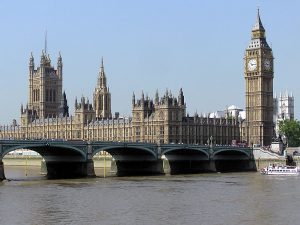 It was on this day in 1918 that the Representation of the People Act received Royal Assent. This act, sometimes called the Fourth Reform Act, followed the previous three in 1832, 1867 and 1884.
It was on this day in 1918 that the Representation of the People Act received Royal Assent. This act, sometimes called the Fourth Reform Act, followed the previous three in 1832, 1867 and 1884.
The Great Reform Act 1832 allowed male rural landowners, shopkeepers and those paying rent of over £10 per annum to vote. Of a British population of c16million only c440,000 were entitled to vote after this great reform – but it got things rolling.
The Second Reform Act 1867 extended the right to vote to more men – more slightly poorer men particularly in towns and cities. The number of men eligible to vote doubled to about 2 million as a result of the Act (the population had risen too) but voting was very much a minority concession even for men.
The Third Reform Act 1884 tidied things up further for men, extending the vote to more in rural areas in line with urban ones. In all three Reform Acts the system improved as far as fairness of constituency boundaries was concerned, removing the ability to vote more than once for some people and enlisted more men, and more less well-off men, in the voting process. After this Act, almost half of men could vote and increasingly any one man’s vote was more or less as powerful at electing MPs as any other man’s, but no women could vote.
But 100 years ago today all men (more or less) got the vote – an extra 5.6 million chaps – and the first women – about 8.4 million – joined the throng.
Not until 1928, did the Representation of the People Act (Equal Franchise) 1928 Act confer the vote to all women over the age of 21 and regardless of property ownership – an extra 5 million voters – and resulted in the 1929 general election being fought with an electorate with a majority of women voters.
From here it would seem bizarre if someone started a campaign to remove the vote from women, or indeed from financially poorer men, but those things were regarded as normal and acceptable once. That’s what progress looks like. It’s the future changes that seem difficult, the past changes seem obvious – but your view depends on where on the timeline you are located.
One day, driven grouse shooting will be banned and looking back after a while, no-one will see that as strange except that it didn’t happen sooner. Please sign Gavin Gamble’s e-petition to ban driven grouse shooting.
[registration_form]
Next, reduce the voting age to 16.
Murray – I’d be in favour of that. 16 for women and 17 for men – to even things up a bit?!
If 16 year old men and women can risk getting killed in the armed forces then they should be able to vote.
It is barbaric that 16-year-olds can join any armed force (they are not allowed to join the front-line until 18, by-the-way) 16-year-olds should not be bound by legal contracts, either. It is too early to marry, or to drink alcohol independently. Probably too young to drive, too. They simply do not have the experience.
Agreed! And teach politics in schools to create a politically aware and switched on generation that’s truly engaged with what’s happening in the country.
Actually, a very good proportion of kids couldn’t care less about politics. At 16 their most imperative driver is sex.
I’ve voted in every election that I have been entitled to do, for the very reason that so many women did what they did so that I had the right to vote. Even, a few years ago, for a particular reason, spoiling my vote, but I was still determined to go to the polls!
Along with reducing the voting age, next should be Proportional Representation – making each vote count.
One day we will look back on First Past the Post and think it was mad that in 2018, millions of people’s votes had no effect on the makeup of parliament.
!6 , and proportional representation in Scotland – leaving archaic “mother of parliaments” behind again!
First-past-the-post is undemocratic.